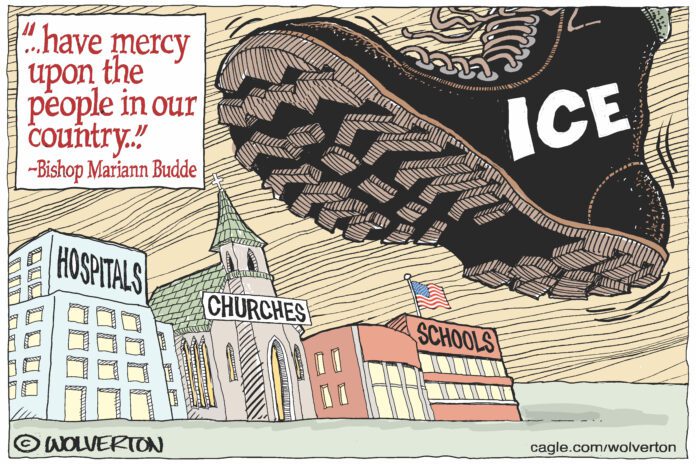When things are really dark, the tiny flicker of light can be all that you need. And so, many of us find ourselves reveling in muted joy at Gov. Kevin Stitt’s recent recollection that there are some human limits to the sycophancy required of Republicans These Days. That this has come in the service of protecting schoolchildren is particularly moving.
But let’s back up for moment:
When I was in law school I was fortunate enough to spend a summer working in Cambodia. Well, I should say that I was fortunate enough to be married to someone with the gumption and drive to arrange for summer work in Cambodia and then was able to tag along with my own work … such is the life of a trailing spouse.
If anything, people are most likely to be familiar with Choeung Ek, the most famous of the “Killing Fields” where, in total, some 1.3 million people were brutally executed during the 4 years – as it turns out, things can go downhill really quickly – of the Khmer Rouge rule in Cambodia.
Choeung Ek is an intensely moving place. There is a tower there of roughly 5,000 human skulls that were exhumed from the site, many showing wounds from the brutal ways they were killed. [Because bullets cost money, the Khmer Rouge opted for more manual methods of execution: knives, pick axes, a tree where infants were held by the feet and swung like bats to their deaths.] To this day, human bones and bits of clothing work their way to the surface of the mass graves, as though the earth itself feels the need to disclose evidence of the crimes that were committed there.
But as moving as the Killing Fields are, the torture center at Tuol Sleng, where people were brutalized and interrogated before being sent to their grisly ends – mainly so that they would provide names of others who could also be sent to grisly ends – was more troubling.
A big part of the trouble was that I recognized some of the torture implements from having watched enough CNN journalists, dripping wet, discussing the fact that experiencing simulated drowning was, in fact, very much torture. There was something sardonically disorienting in working your way around a former classroom saying to yourself “torture, torture, enhanced interrogation, torture, torture … ” But there’s the rub: the worst part was that this dark and evil space had once been a school.
I am a hopeless romantic for the ideal of the school as a source of hope and liberation in dark times. I, like all Americans roughly my age, was raised to believe that education – the school, the university, the chalk and mortar boards – held the hope and promise that cultivating ourselves and our broader understanding of the world would lead to better lives for us individually, and for the whole of humanity.
Of course, schools are not, nor have they ever been, perfect places. And there are certainly more than enough instances in our own history of schools having been used to serve the ends of genocide. But as we have striven to be more humane, there was a hope, at least among Americans roughly my age, that we knew better now.
There is something particularly profane and disturbing at seeing the halls of a place dedicated to cultivating freedom, and inquiry, and community turned into instruments of terror and bureaucratic evil.
With so little good news These Days, I’m glad to have finally found something Kevin Stitt and I can agree upon.







